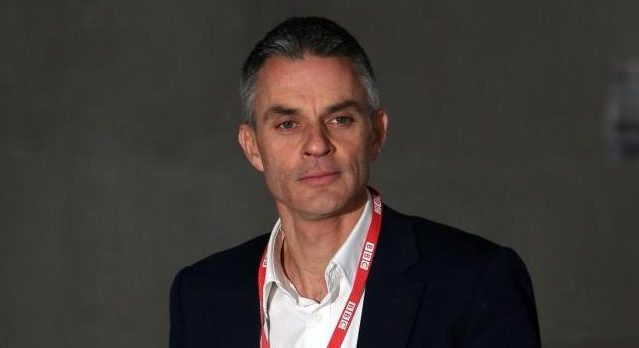In appointing Tim Davie, a marketing man, as its new Director-General the BBC is clearly signalling it fears lean times ahead; Tony Hall, the man he is replacing, is a journalist by training and went on to successfully run Covent Garden, before becoming D-G. Mr Davie, in contrast, has few creative or artistic credentials; he’s a marketeer who cut his teeth flogging Pepsi-Cola and bathroom products at Proctor and Gamble. This is not to sneer: the BBC has no shortage of creative types but what it may soon face is an acute shortage of money. Flogging stuff profitably is going to be crucial in the coming years.
Mr Davie has already proved himself adept at that in his role as chief executive at BBC Studios, the Corporation’s commercial arm, which netted him a handsome salary last year of £642,000. In his new role he’ll have to scrape by on £450,000 because the BBC is operating under a self-denying ordinance which trimmed back top salaries after the grotesque inflation of the Mark Thompson years (when he retired in 2012 to move to The New York Times Thompson was being paid £825,000). And money-matters will be item No.1 on the new boss’s to do list.
Consider this: the BBC has already announced that it needs to find savings of £125 million this year because of falling revenues — but a much bigger challenge awaits. From the autumn the BBC is pledged to assume the full cost of providing free TV licenses to all over-75s in the country at an estimated cost of around £700 million; that’s around 15% of the BBC’s total revenue. All this against an ominous political background; the BBC has few friends in government and events of recent weeks further darkens the outlook.
An under-reported aspect of the Emily Maitlis affair last week was just how bitter relations between the BBC and Downing Street have become. In March Maitlis presented ‘Taking Control: the Dominic Cummings Story”; it was a very hostile profile of Cummings, a man who dislikes the BBC and mistrusts its journalism. After Maitlis’s attack last week, the mood in No10 was said to be sulphurous and with Cummings still in place the Beeb can expect no favours.
A mid-term review of the BBC’s Royal Charter is slated for 2022 with an implicit threat that the license fee (cherished by the Corporation because of the secure revenue it guarantees) might be abolished. And even before that the government is said to be considering de-criminalising non-payment of the license fee which would mean a further loss of revenue. And behind it all is the widespread feeling among the Brexiteers in the Tory party that it’s payback time for the perceived bias against them which the BBC has demonstrated over decades.
In taking over the reins of the Corporation at this moment Tim Davie faces a perfect storm of challenges; falling revenues, a hostile government and an ever-growing array of muscular competitors like Netflix and Amazon. He will need first-rate commercial and political acumen if the BBC is to prosper.










Join the discussion
Join like minded readers that support our journalism by becoming a paid subscriber
To join the discussion in the comments, become a paid subscriber.
Join like minded readers that support our journalism, read unlimited articles and enjoy other subscriber-only benefits.
Subscribe